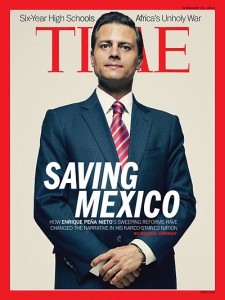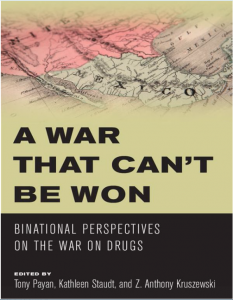El Paso reacts with skepticism to Chapo Guzman’s capture
|
EL PASO — On February 14, 2014, the leader of the Sinaloa Cartel Joaquin “El Chapo” Guzman was captured in a small, rather dull condominium. Guzman ran a drug business worth approximately $3 billion, and he has been on the run from Mexican officials since his first escape from prison in 2001. According to Mexican officials, he escaped jail the first time by simply bribing prison guards and walking out the front gate. However, this escape was highly romanticized and eventually grew into a daring urban legend. Guzman’s most recent capture has left borderland residents with mixed emotions ranging from elation to apathy.



